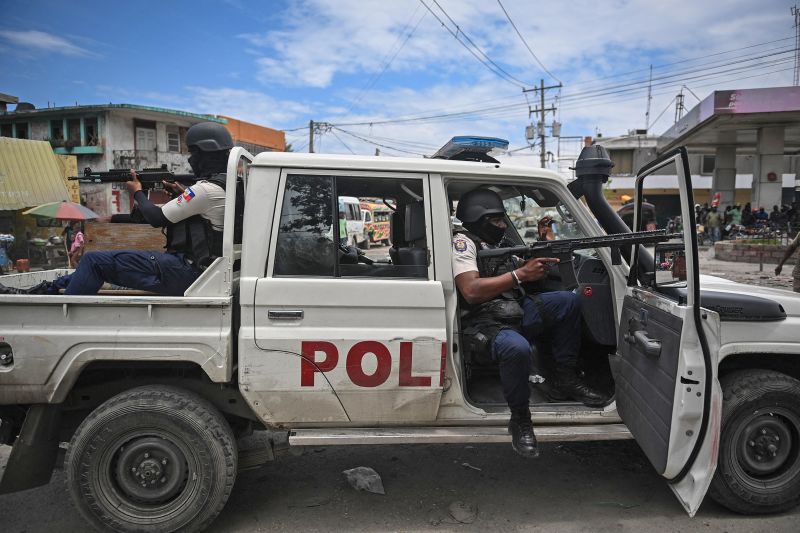
Kenya police to take on Haiti criminal gangs amid criticism of their human rights record
Concerns over Kenya’s human rights record have cast a shadow over a UN decision that gave Kenya the go ahead to lead an armed multinational force to Haiti amid brutal gang violence in the Caribbean country.
For a year, the multinational force, comprising 1000 Kenya police personnel is expected to combat criminal gangs responsible for a wave of killings, kidnappings and rape in Haiti.
But human rights groups argue that Kenya’s history of human rights abuses must be evaluated.
On Tuesday, Amnesty International Kenya urged UN member states, human rights organizations and citizens to thoroughly examine the “human rights and humanitarian implications” of deploying an armed multinational force to Haiti.
Kenya’s police have often been criticized for its violent approach towards containing demonstrations in the country. Dozens of civilians have been killed during anti-government protests in the East African country this year.
The Kenya National Civil Society Center opposed the deployment of the country’s police personnel to Haiti, accusing it of “extrajudicial killings.”
Some in Kenya are also skeptical as to the real motive behind the mission.
“Many people believe the president of Kenya is out to please the international community. He’s out to be a darling of the west. He has been on a charm offensive to please the outside world, to appear to be an African statesman,” Manyora argued.
‘A collective moral duty’
However, Kenyan President William Ruto called the outcome of Monday’s vote “overdue” and “a critical instrument” that will “provide a different footprint in the history of international interventions in Haiti.”
In a media statement on Tuesday, Ruto said he was “delighted” that the UNSC had directly answered his call, citing his recent speech at the United Nations General Assembly regarding the need for a framework of a multinational support force in Haiti.
Ruto said the decision “marks an important moment in the history of global multilateralism,” and argued that it “enables the nations of the world to discharge a collective moral duty of securing justice and security for all peoples of all nations.”
“For us in Kenya, this mission is of special significance and critical urgency. We experienced the harrowing brunt of colonialism, as well as the long, difficult and frustrating struggle… In our struggle, we always had friends … true, loyal and determined friends. The people of Haiti, our dear friends, today stand in need. It is our fundamental moral obligation to be their friend indeed, by standing with them,” Ruto said.
